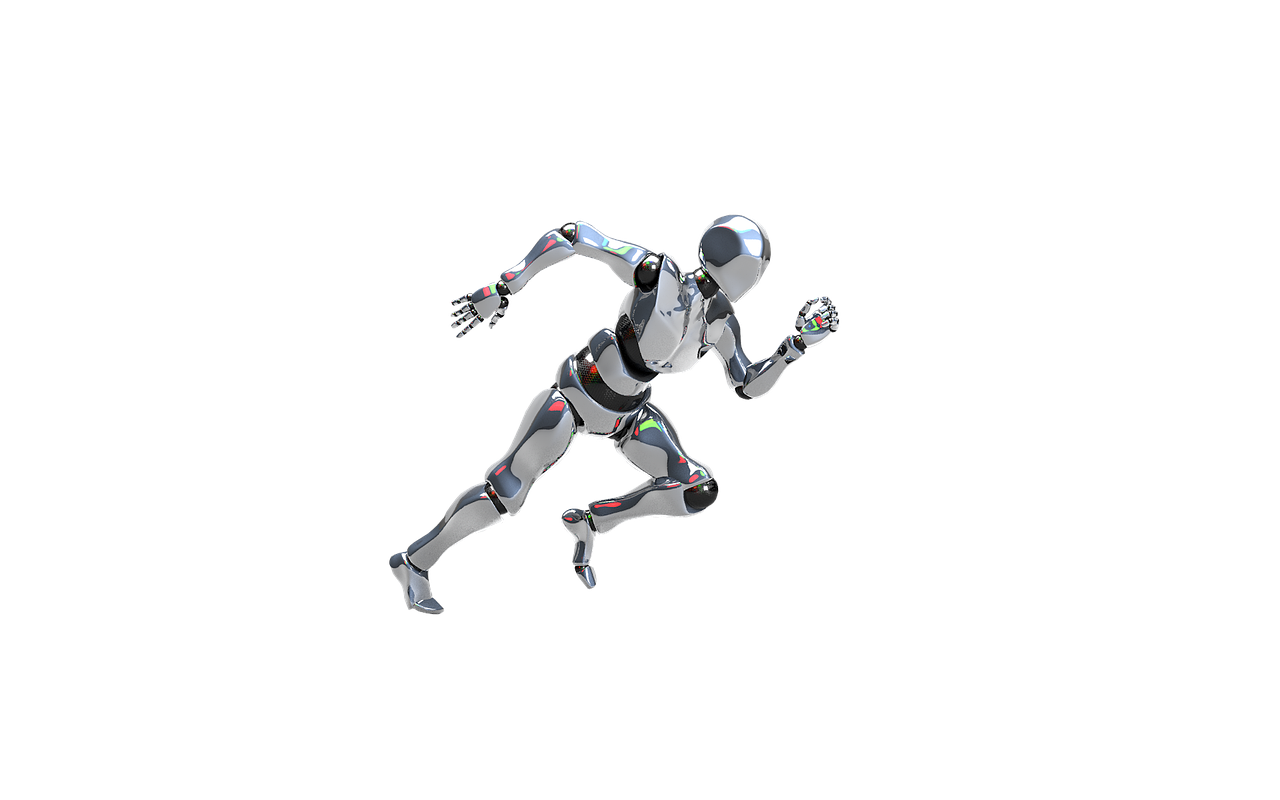The Impact of AI on the Job Market: Preparing for Workforce Transformation by 2050

Brief news summary
Artificial intelligence (AI) is rapidly transforming the global workforce, with experts forecasting that by 2050, up to 60% of current jobs will require significant adaptation due to AI integration and automation. By 2030, around 30% of US jobs could be fully automated, and 60% altered, trends expected to intensify by mid-century. Jobs involving repetitive tasks, such as administration, data entry, finance, legal work, and basic journalism, face the greatest disruption risk, while sectors like healthcare and education remain more resilient due to their reliance on human-centric skills. Although AI enhances productivity, concerns exist that job displacement may outpace job creation unless robust retraining programs and skill development efforts are implemented. Roles demanding emotional intelligence, creativity, empathy, and complex problem-solving—such as nursing, teaching, leadership, and advanced research—are less vulnerable to automation. To succeed in this changing landscape, individuals must cultivate critical thinking, digital literacy, and a commitment to lifelong learning to adapt to ongoing economic shifts.Artificial intelligence (AI) is rapidly progressing, raising urgent questions about how soon it will dominate the job market and impact individual careers. With the U. S. facing a $36 trillion debt, trade tensions, and economic uncertainty, AI-driven disruption adds urgency for workers to prepare themselves. By 2050, AI is expected to fundamentally reshape the global workforce, according to PwC, McKinsey, and the World Economic Forum. Estimates indicate up to 60% of current jobs will require significant adaptation due to AI integration, with automation and intelligent systems becoming central in workplaces. To stay competitive, individuals should develop skills like critical thinking and digital fluency, focus on AI-resistant sectors such as healthcare and education, and support retraining initiatives for career reinvention. Ray Dalio, Bridgewater Associates founder and macro investor, warns that the future economy depends on balancing AI’s power with human potential. Those preparing now will influence tomorrow’s world. **Rapid Change Ahead** Experts predict a 10-to-30-year window during which AI will transform most jobs. McKinsey projects that by 2030, 30% of U. S. jobs could be automated, and 60% significantly altered by AI tools. Goldman Sachs estimates up to 50% of jobs might be fully automated by 2045 due to advances in generative AI and robotics. They also predict about 300 million jobs worldwide could be displaced, affecting roughly 25% of the global labor force. However, labor-intensive roles in construction, skilled trades, installation, repair, and maintenance remain less vulnerable. Dalio cautions of a “great deleveraging” where AI boosts productivity but displaces workers faster than new jobs emerge—potentially within two decades. Larry Fink, CEO of BlackRock, recently noted AI's evident impact in finance and legal services, forecasting a "restructuring" of white-collar work by 2035. JPMorgan Chase’s CEO Jamie Dimon estimates AI will dominate repetitive tasks within 15 years. The speed of AI adoption depends on technological breakthroughs, regulations, and economic pressures. Billionaire investor Bill Ackman highlights rising corporate cost pressures accelerating AI implementation and shortening timelines. Conversely, Treasury Secretary Scott Bessent suggests that with proper retraining efforts, AI could enhance U. S. competitiveness while delaying widespread job losses. By 2040, AI is expected to automate or transform 50–60% of jobs, potentially reaching over 80% by 2050 if innovation continues steadily. **Job Impact: From First to Last** AI's effects will vary widely by occupation.
Routine jobs—like data entry, scheduling, and customer service—are already being overtaken by AI tools such as chatbots and robotic process automation. A 2024 Institute for Public Policy Research study found 60% of administrative tasks are automatable. BlackRock is cutting costs by streamlining back-office functions with AI, signaling near-term obsolescence for repetitive data-processing roles. Highly vulnerable areas include bookkeeping, financial modeling, and basic data analysis. AI platforms like Bloomberg Terminal improvements now generate reports faster than humans. JPMorgan plans to automate routine banking tasks, risking 20% of analytical roles by 2030. Paralegal tasks, contract drafting, and legal research are prime targets, with AI tools like Harvey and CoCounsel achieving 90% accuracy in document analysis, per a 2025 Stanford study. Dalio notes AI’s ability to analyze large datasets threatens research-driven roles in academia and consulting. Yet senior legal strategists and courtroom advocates are less susceptible due to the need for complex human judgment. Creative fields such as graphic design, copywriting, and basic journalism face disruption from AI platforms like DALL-E and GPT-derived tools, capable of mass content generation. A 2024 Pew Research Center report estimates 30% of media jobs could be automated by 2035. Ackman predicts AI-generated advertising content will dominate soon but believes human creativity in storytelling and high art will endure longer. Software development, engineering, and data science hold a dual role: AI enhances productivity yet automates routine coding and design tasks. A 2025 World Economic Forum report forecasts 40% of programming tasks automatable by 2040. Bessent highlights growth in AI-related fields like cybersecurity, while standard STEM roles gradually yield to algorithms. Complex, innovative R&D endeavors will remain human-driven longer. In healthcare, diagnostic AI and robotic surgery are advancing, though empathy-dependent roles like nursing, therapy, and social work resist automation. A 2023 Lancet study estimates 25% of medical administrative tasks may disappear by 2035, but patient care requires human trust. Teaching, especially in nuanced disciplines such as philosophy or early education, along with high-level management, depends on emotional intelligence and adaptability—areas where AI struggles. A 2024 OECD report suggests only 10% of teaching tasks are automatable by 2040. Both Dimon and Ackman emphasize that strategic leadership, which involves navigating ambiguity and inspiring teams, will remain fundamentally human. In summary, AI’s transformative impact on employment is imminent and profound, varying across sectors and job types. Preparing through skill development, focusing on resilient fields, and advocating retraining will be essential for workers aiming to thrive in the evolving landscape.
Watch video about
The Impact of AI on the Job Market: Preparing for Workforce Transformation by 2050
Try our premium solution and start getting clients — at no cost to you

I'm your Content Creator.
Let’s make a post or video and publish it on any social media — ready?
Hot news

Anthropic’s India expansion collides with a local…
As Anthropic expands its operations in India, a local software firm has filed a court complaint claiming it had been using the name “Anthropic” prior, highlighting potential conflicts that can arise when rapidly growing AI companies enter established local markets.

AI-Powered Video Editing Tools Revolutionize Cont…
In recent years, artificial intelligence has significantly reshaped the video editing landscape, ushering in a new era of creativity and efficiency for creators globally.

AI’s latest 20-something billionaire got his star…
Ali Ansari, poised to become one of the world’s youngest AI billionaires at 25, began his entrepreneurial journey as a bored preteen in Los Angeles.

AI-Driven SEO Strategies: A Game Changer for Digi…
Artificial intelligence (AI) is revolutionizing digital marketing by introducing AI-driven search engine optimization (SEO) strategies that give businesses a notable competitive edge.

Runway Partners with IMAX to Showcase AI-Generate…
Runway has partnered with IMAX in a groundbreaking collaboration that underscores the rising impact of artificial intelligence (AI) on the creative industry by showcasing AI-generated films in theaters.

C3 AI Selected to Deliver AI Logistics Solution f…
C3 AI has been selected by the U.S. Army Rapid Capabilities and Critical Technologies Office to develop an advanced artificial intelligence (AI) solution focused on contested logistics for combat operations.

Social Media Management Market Soars to US$ 161.6…
The global Social Media Management (SMM) market is rapidly expanding, propelled by AI integration and the rise of social commerce.
AI Company
Launch your AI-powered team to automate Marketing, Sales & Growth

and get clients on autopilot — from social media and search engines. No ads needed
Begin getting your first leads today








